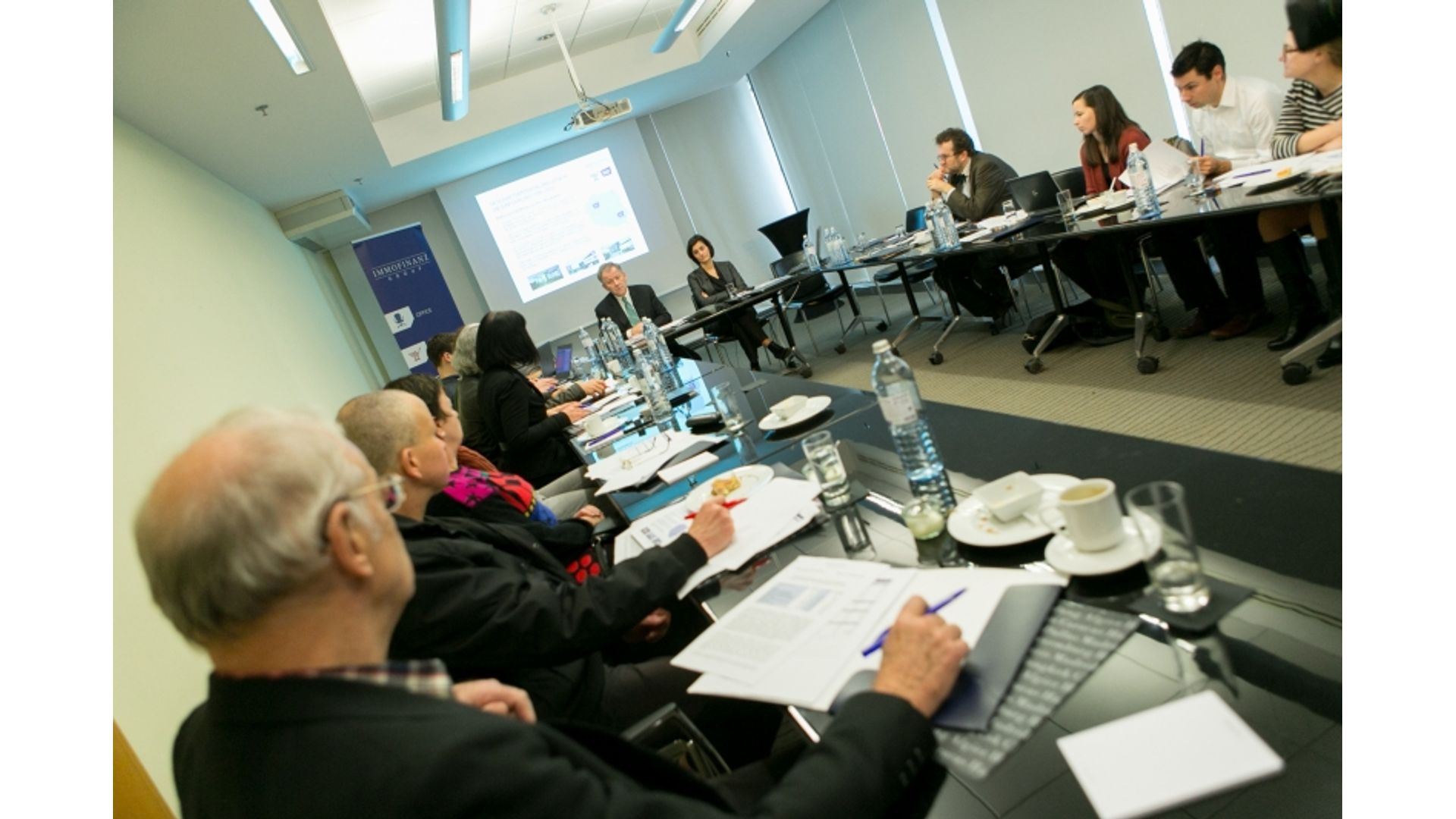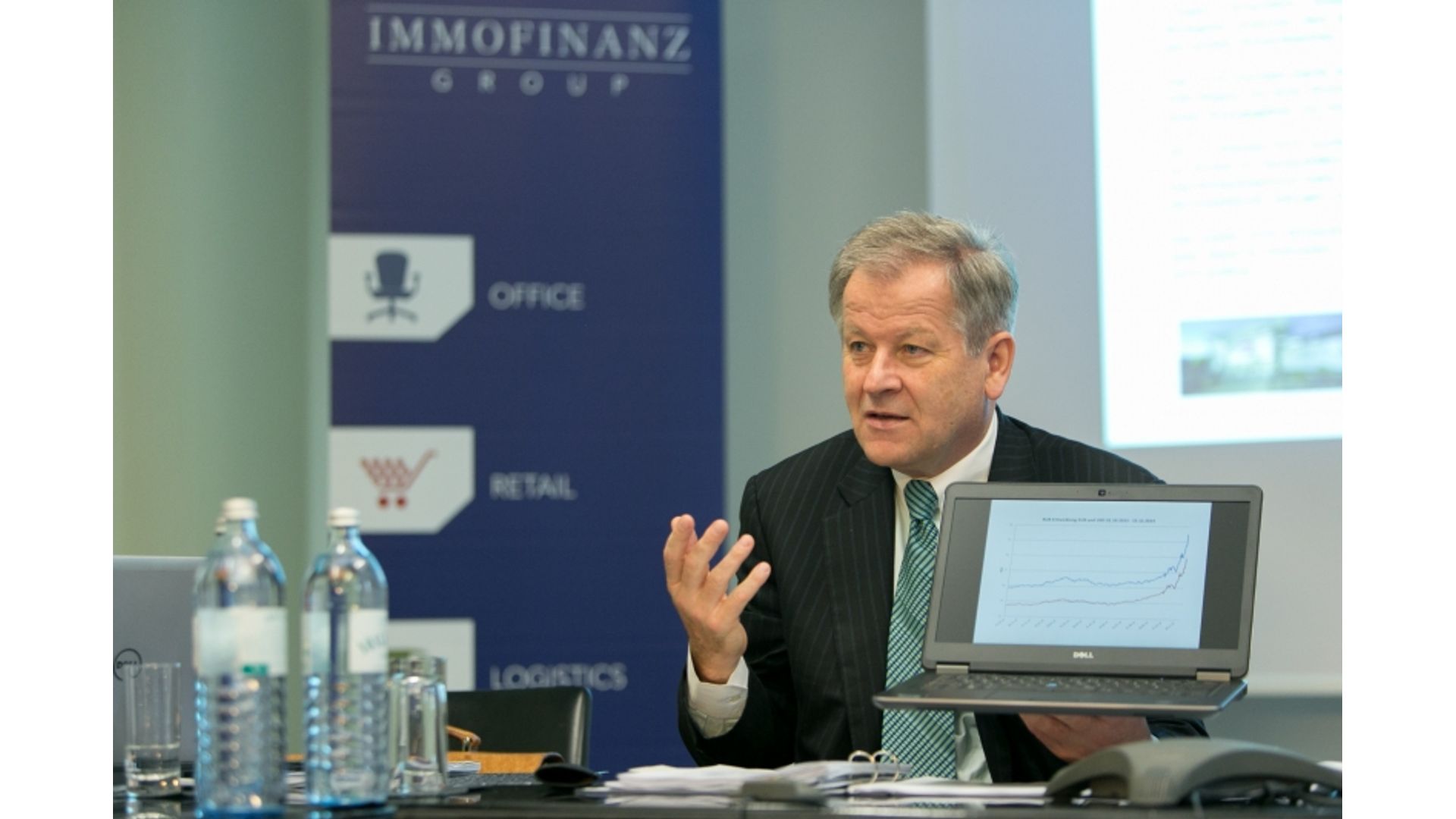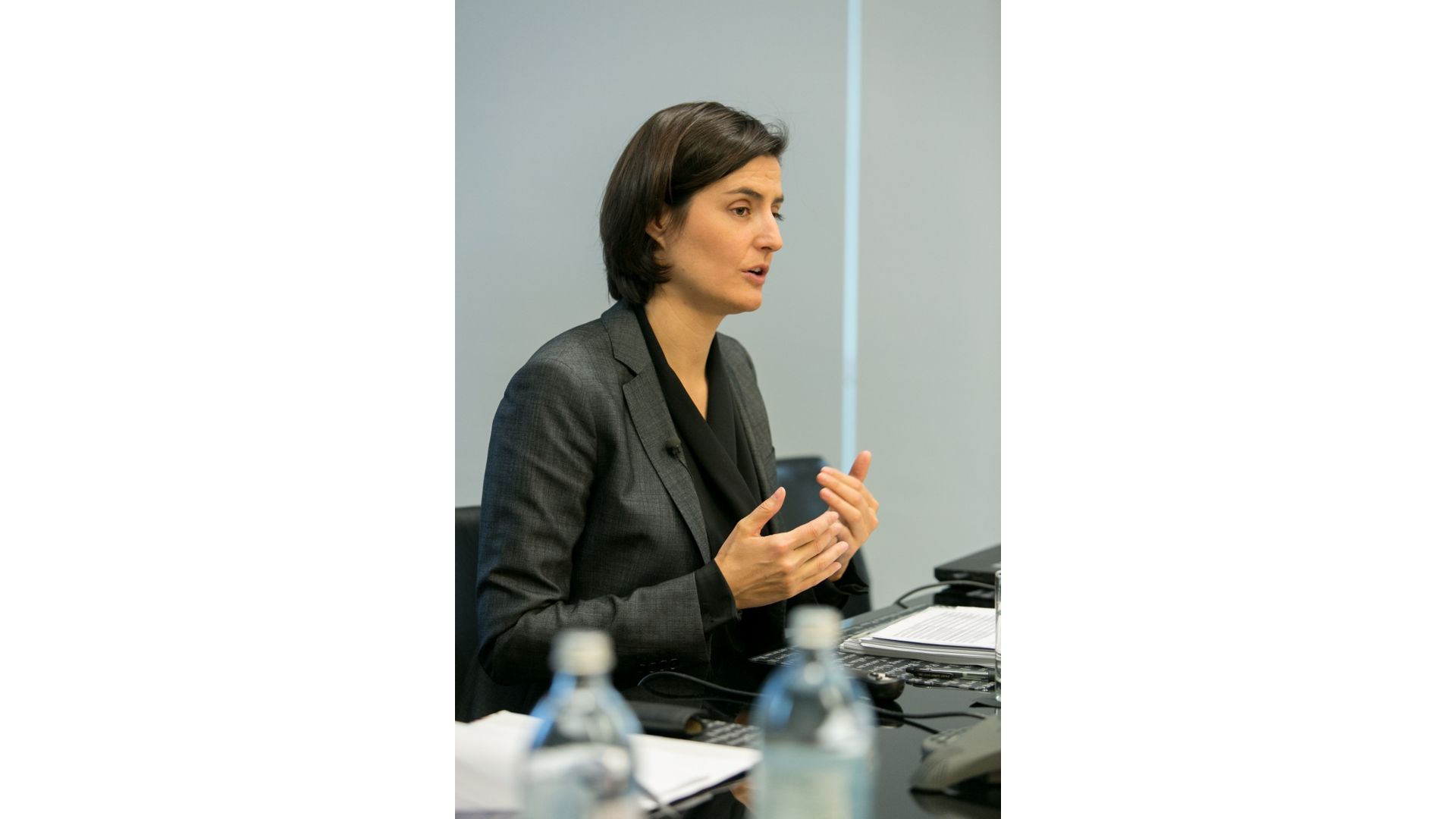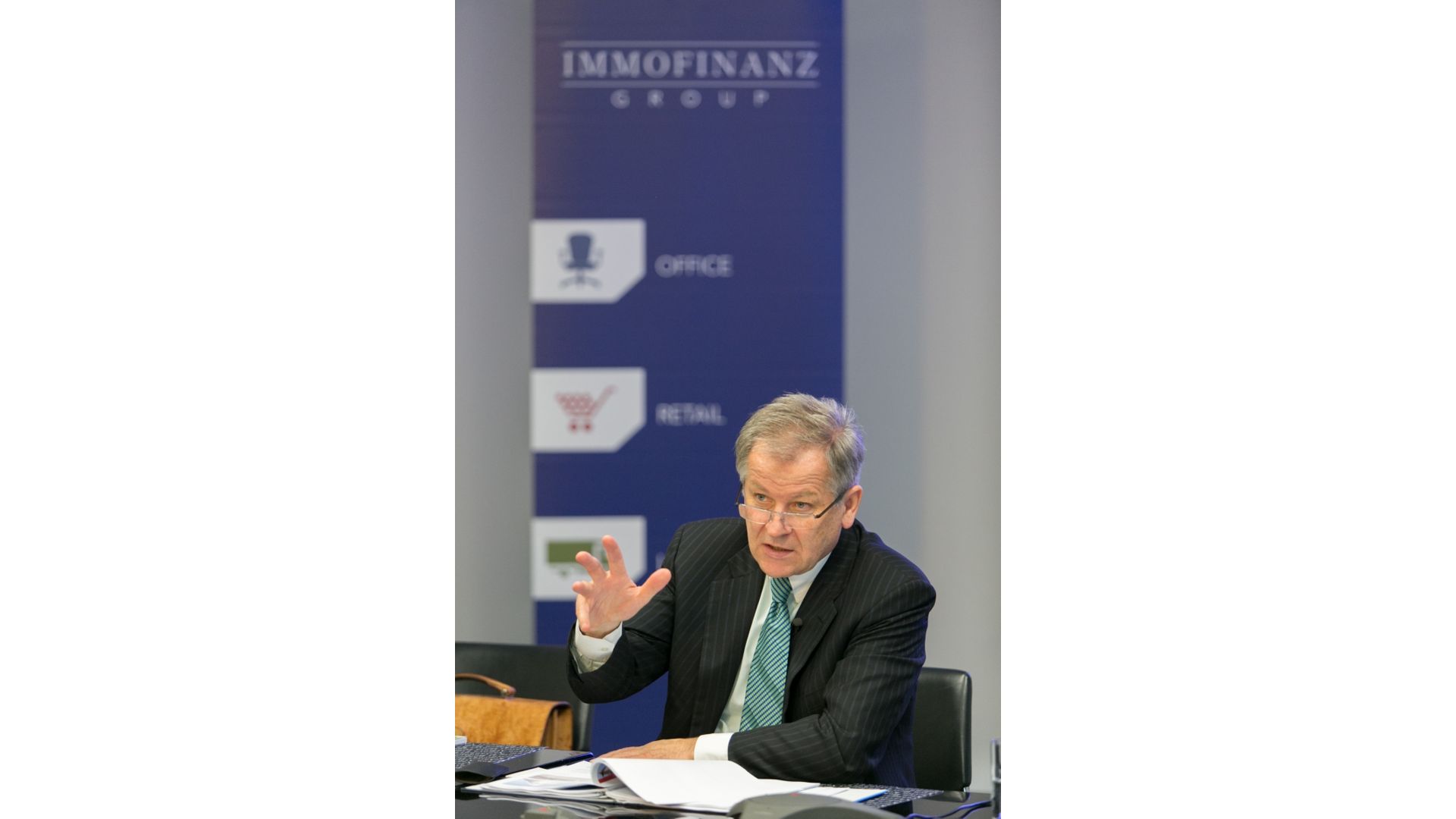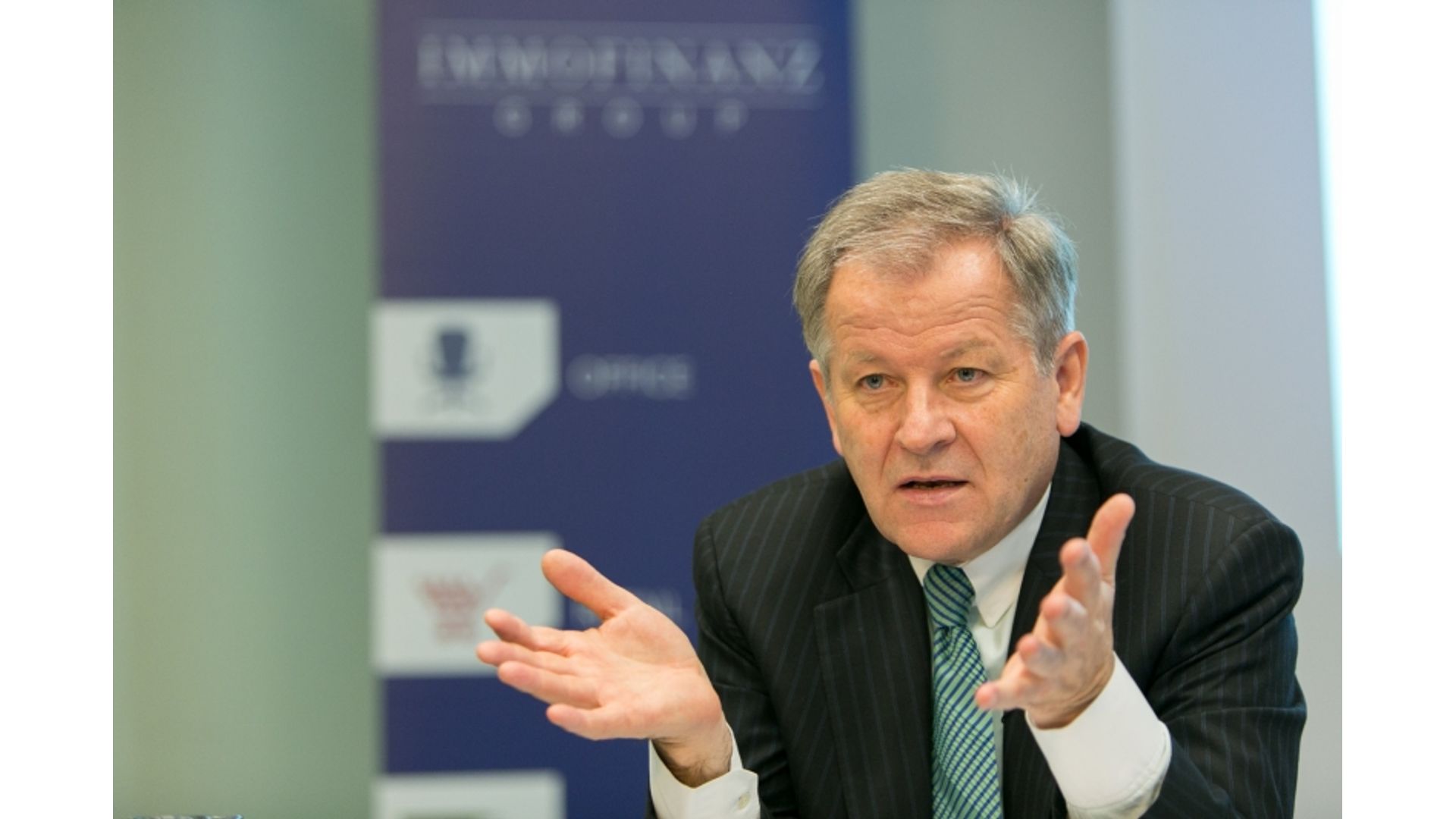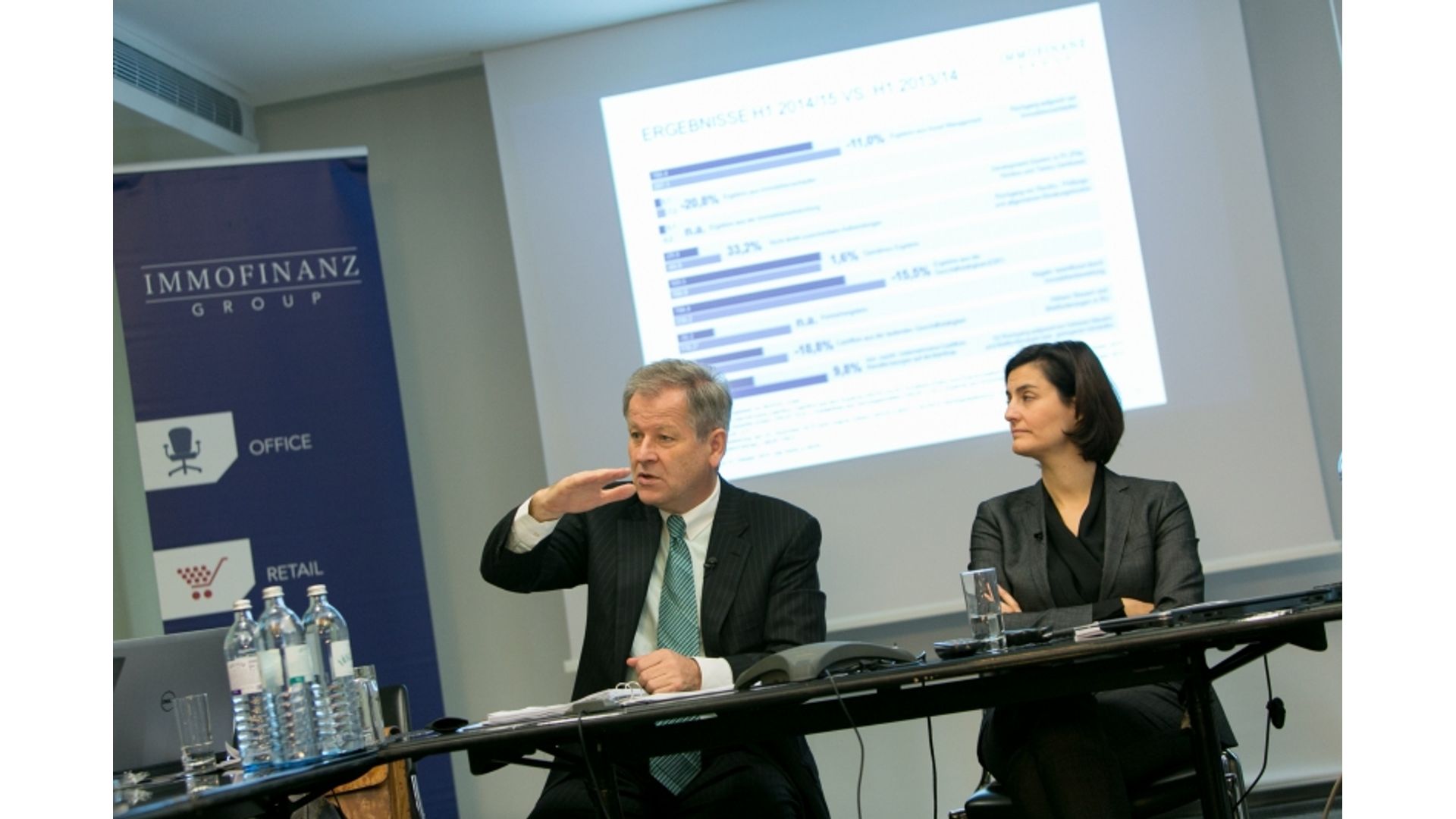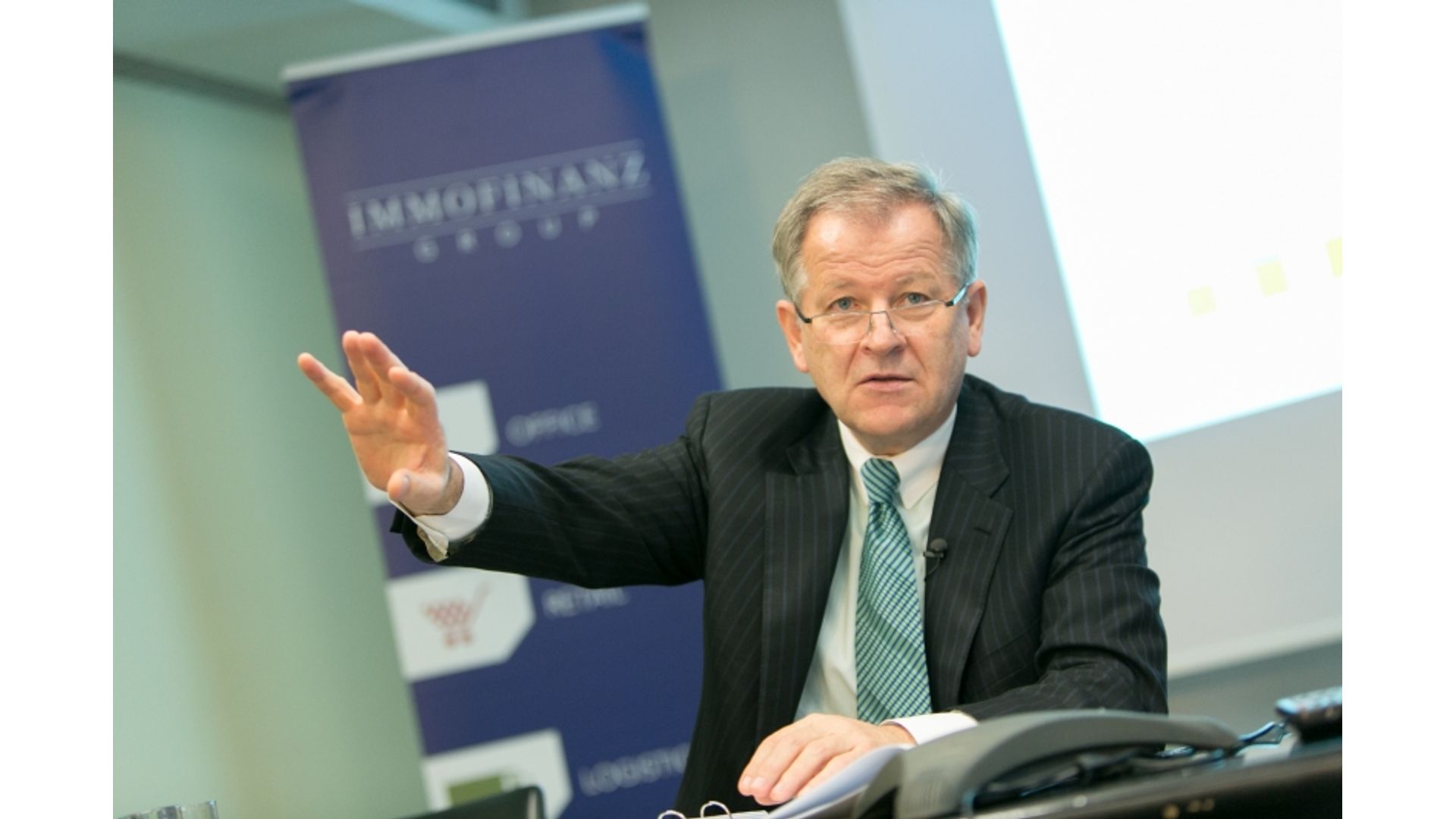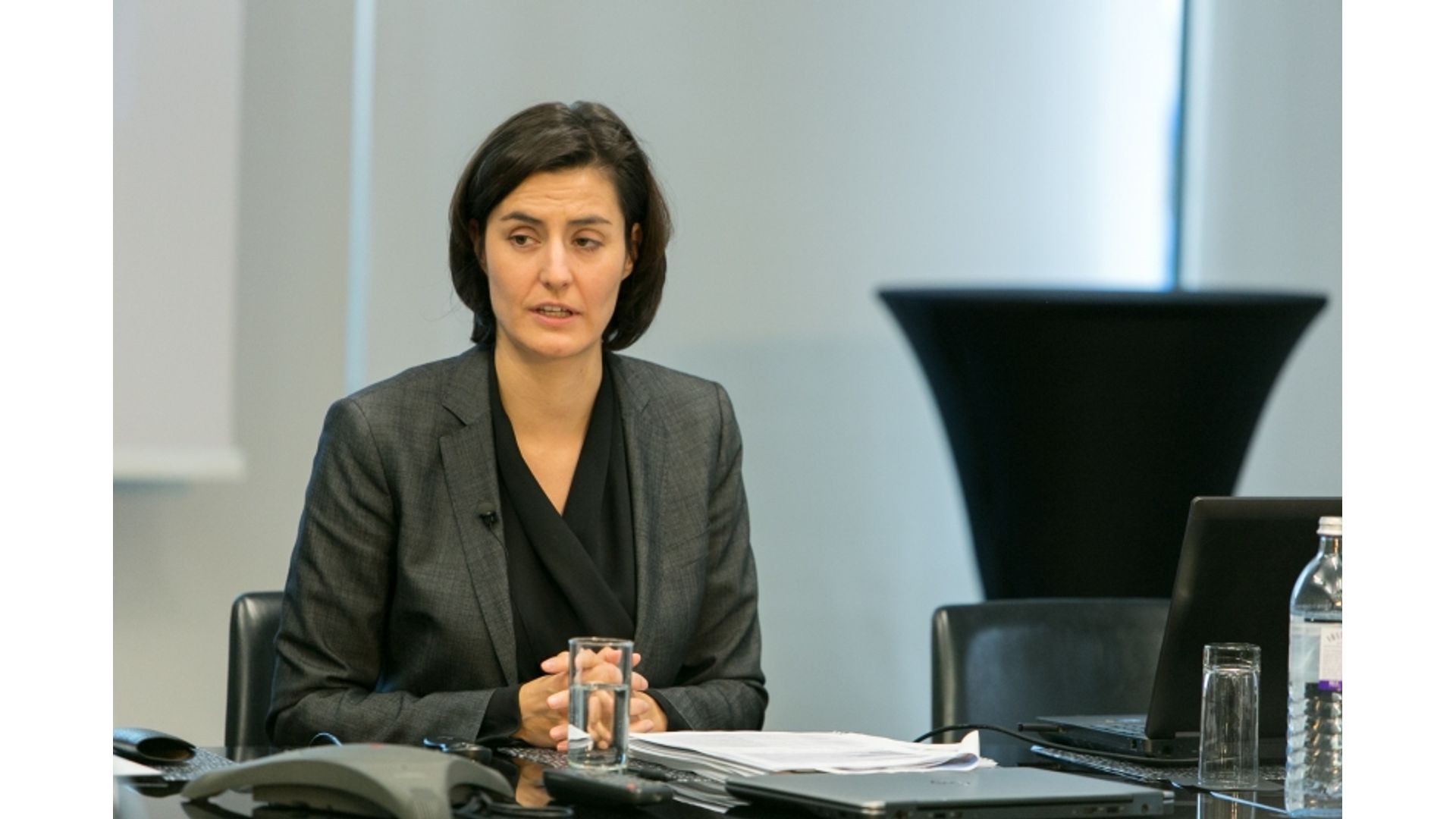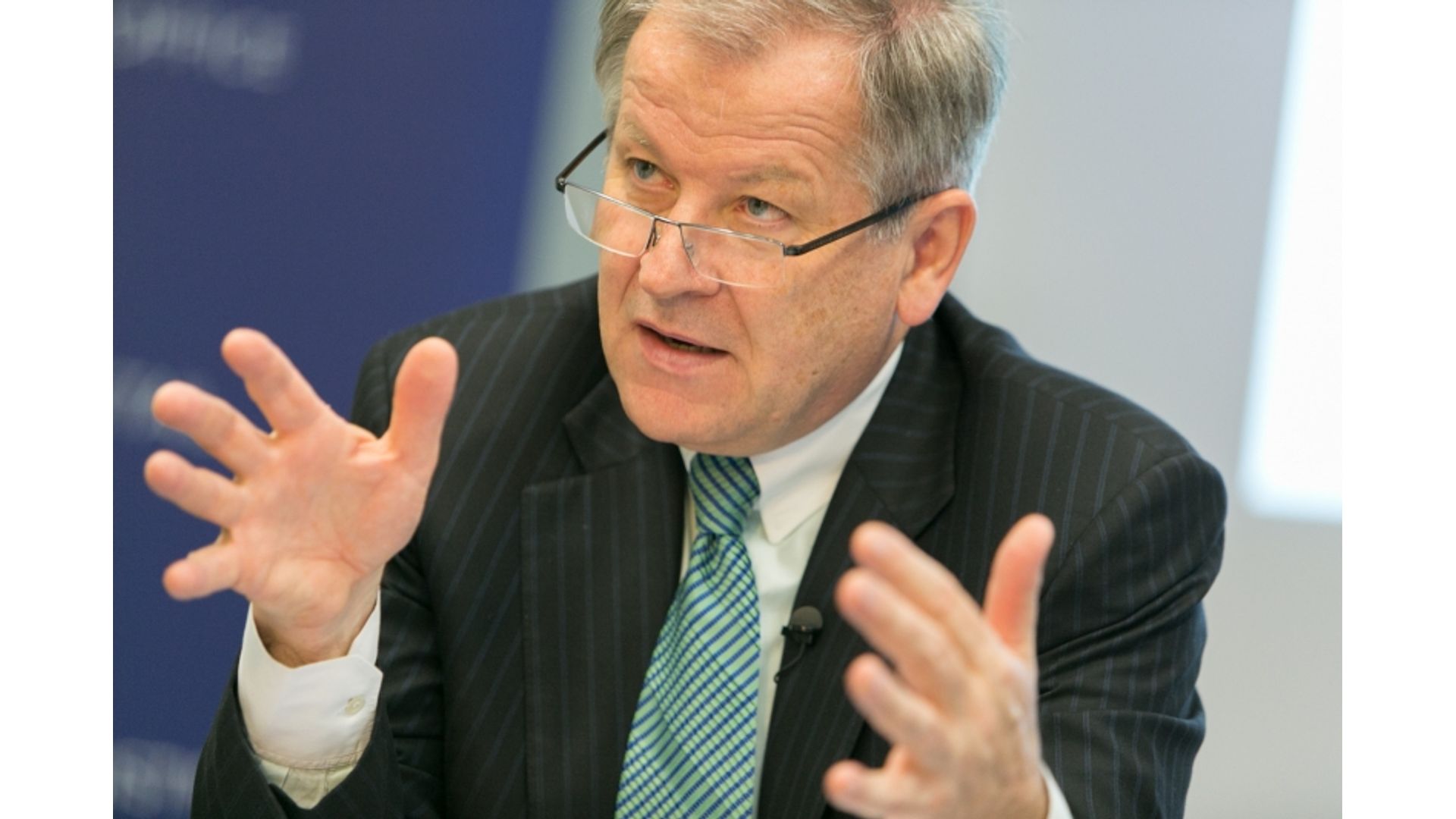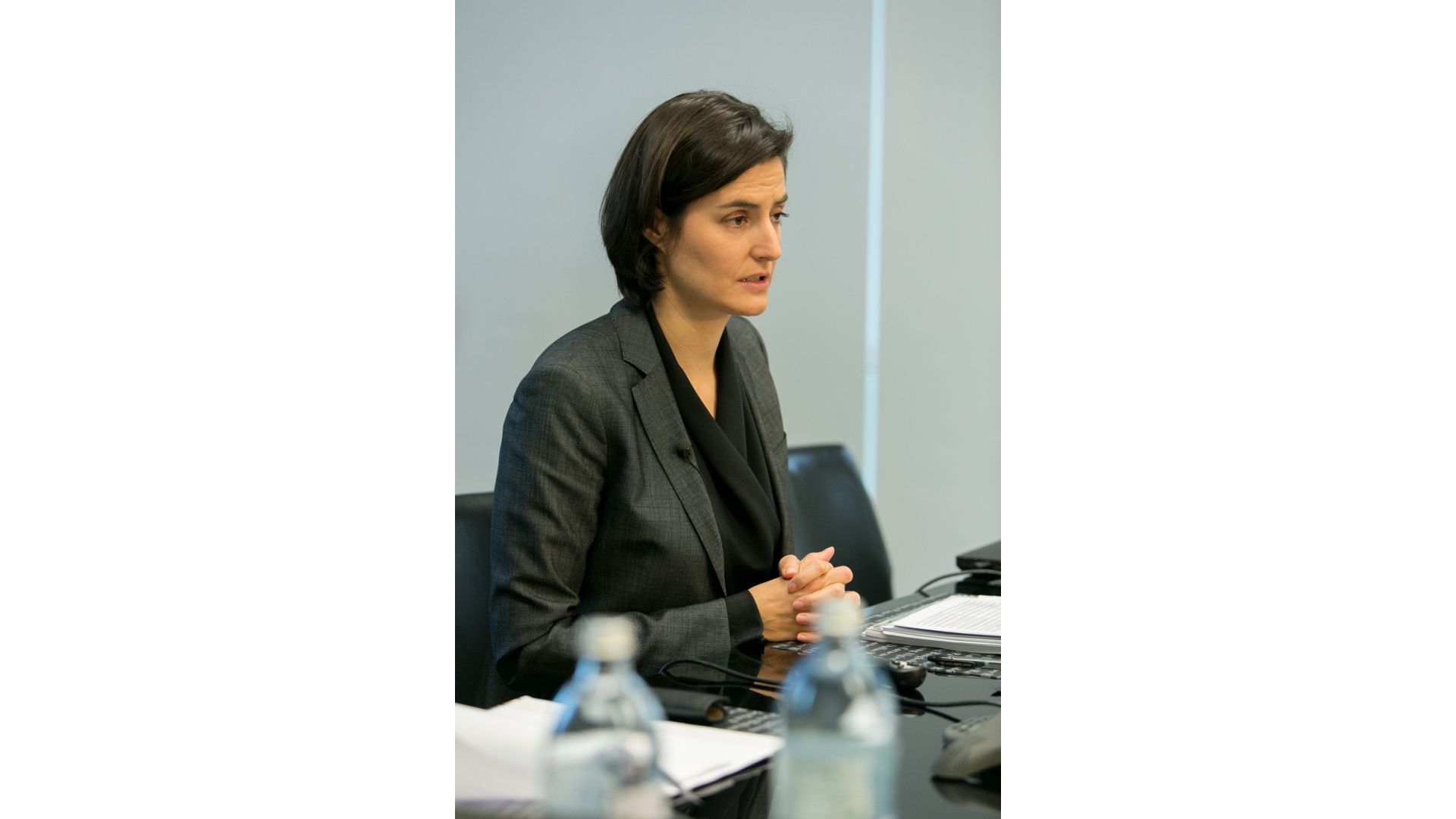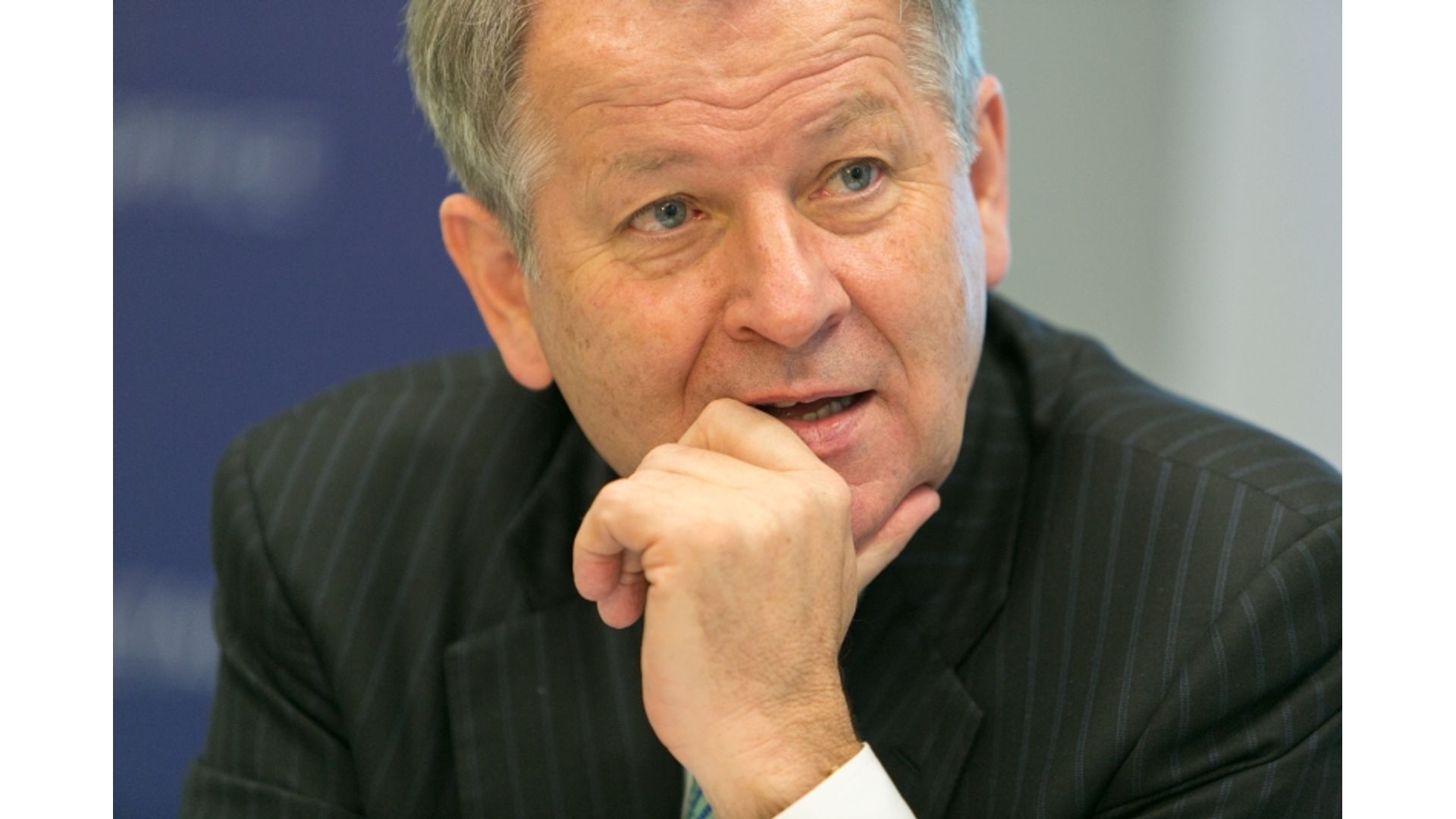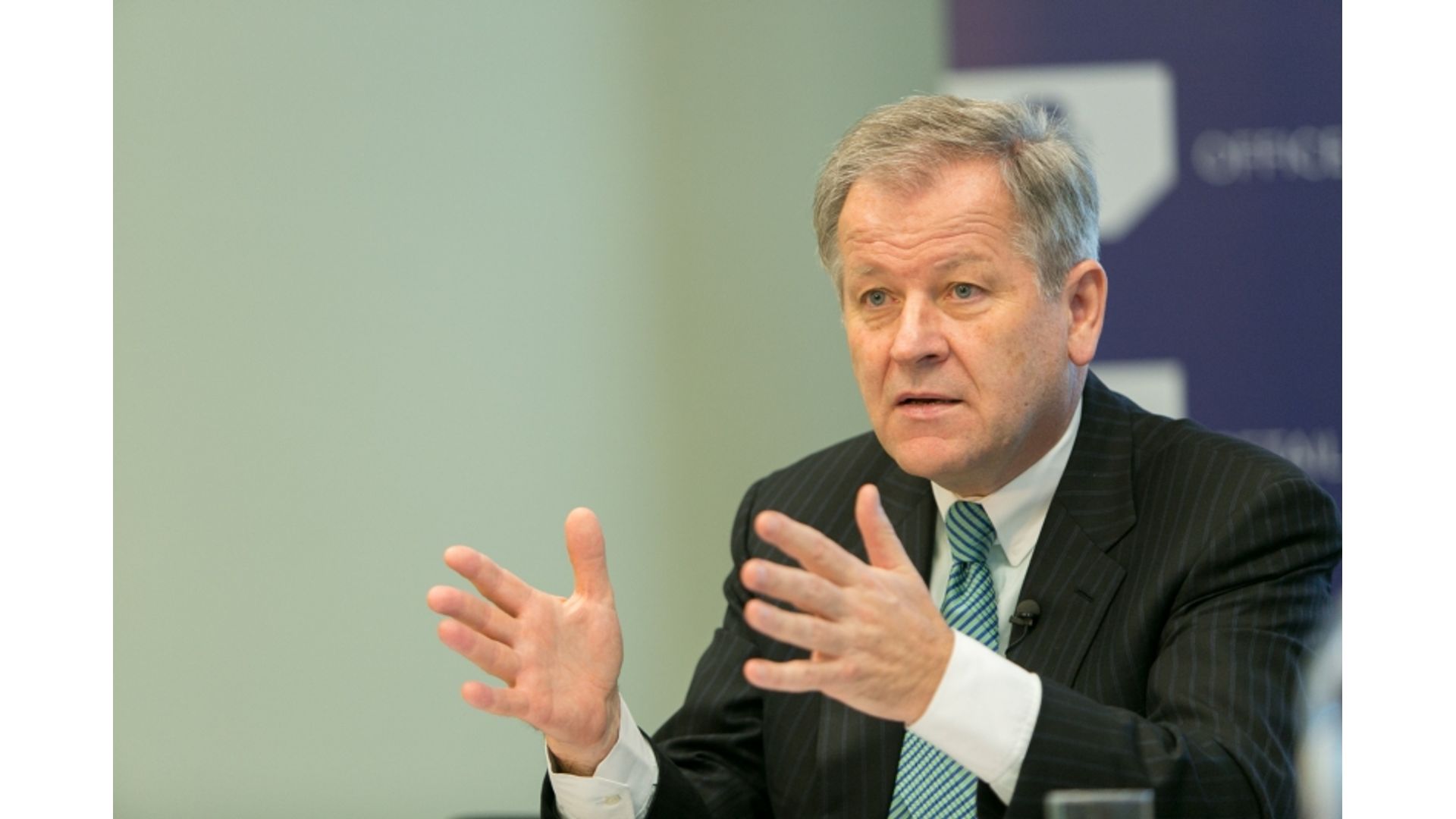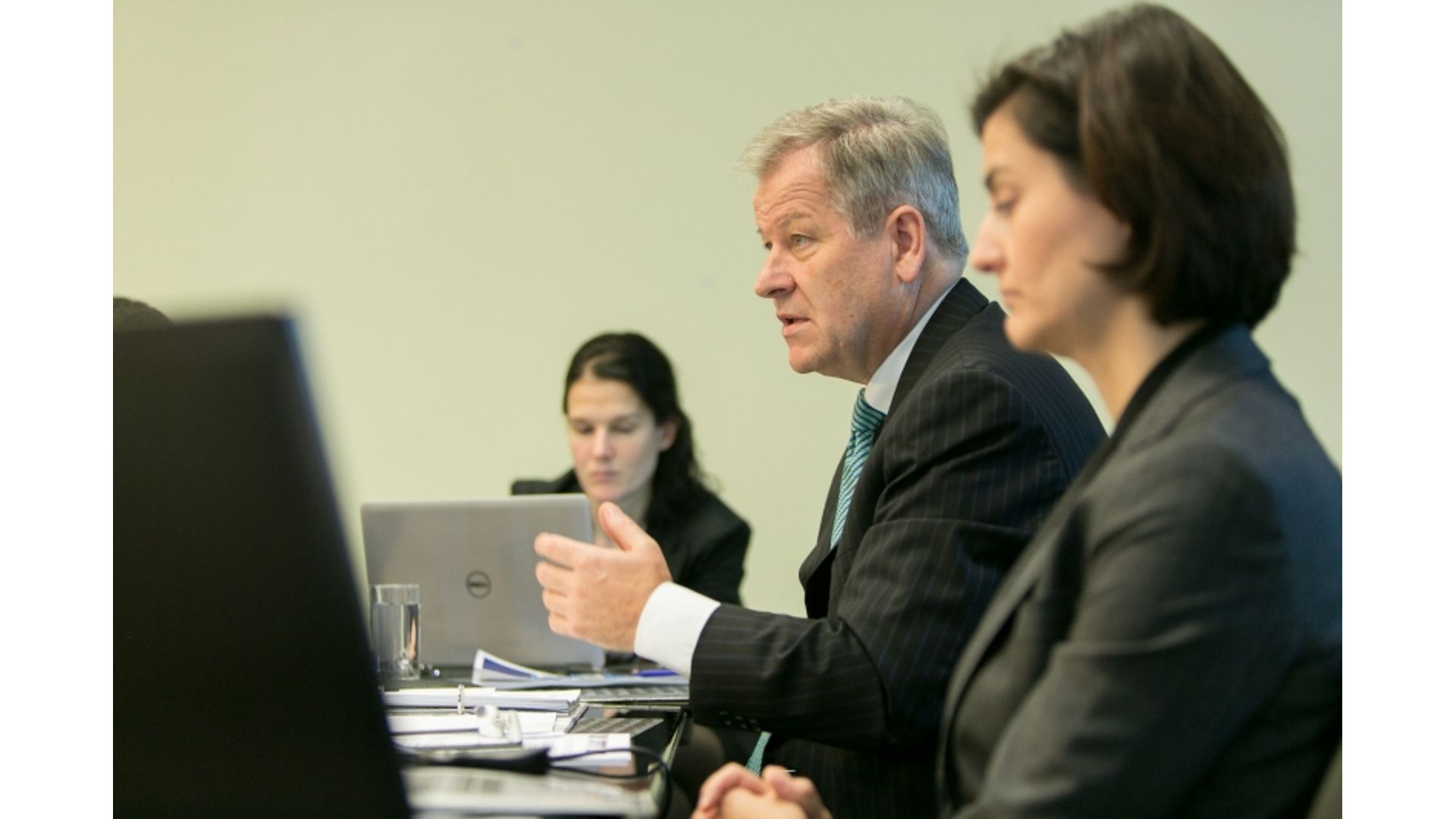Corporate Communications

18.12.2014
IMMOFINANZ - Russia was the topic at the presentation of half year results (photos and video)
The investors' breakfast and press conference on Thursday were basically the conclusion of an intensive week as far as company announcements go (share buyback, half year figures): as expected, many of the questions directed at CEO Eduard Zehetner and CFO Birgit Noggler – by analysts and investors as well as journalists – concerned Russia and the further development of this market.Below is a short summary of the most popular issues. A video cut of the press conference can be found under the following link (only German language):
http://presentations.immofinanz.com
On the temporary reductions in rent in our Moscow shopping centres:
We generally grant the reductions in rent for a period of three to six months. As the deterioration of the rouble has continued over the past months, we will have to continue this policy of temporary reductions.
For Russian consumers, the weak rouble, high inflation and comparatively weaker growth of nominal wages has resulted in a loss of purchasing power. Thus the mood in retail is noticeably subdued: while overall the frequency in the shopping centres has declined only slightly in the past months, our tenants have reported appreciable revenue declines. The outcome of the usually vigorous Christmas business will also play a role in the development in the third quarter of our financial year.
Brief business update on Russia (can also be read in the presentation on the semiannual results):
Like for like, rental income in Q2 2014/15 (compared to Q1) declined by 1.1% (to EUR 44.3 million). Footfall (which is the number of visitors) in our shopping centres was around 6% less in the period from January to November 2014 than in the comparative period in 2013 (excluding Goodzone).
Occupancy in our Russian shopping centres increased slightly as of the end of Q2 to 94.4% (after 93.7%). Looking at the tenant mix, national tenants account for 35% and international tenants for 65%. In the current climate smaller national tenants, in particular, are suffering from the increasing rent-to-sales ratios.
Why we aren't selling our Russian assets:
We have a cash flow-based business model, the real estate machine. This model allows for property sales, if we can get the maximum price. In view of the current situation in Russia this is not the case. Property sales do not make sense if the market is on the bottom. And even if we should have higher losses in rental income in Russia, we would still be generating more rental income for comparable spaces than, for instance, in Romania, Poland or the Czech Republic.
Why we are still considering or reviewing investments on a moderate scale in Moscow and its surrounding areas:
We've been operating in this market for years, we are familiar with it and have very good people on location. Moscow and its surrounding areas are still undersupplied with high-quality retail space compared to other big European cities. Here we're talking about a region with around 20 million people in which there is a lot of money to earn – in the scope of "normal" economic development.
Actually, now the time would also be good for project planning: the prices for properties are falling. But, of course, we are very precise in our reviews and evaluations. For instance, we recently decided against a logistics project because we didn't find it profitable enough to cover the risks – elsewhere in Europe any developer would have jumped at the chance to carry out such a project.
On the dividend:
It's likely that further deterioration of the situation in Russia would also result in additional negative effects in the currency-adjusted revaluation of our Russian assets. This, in turn, would affect whether we generate a distributable balance sheet profit at IMMOFINANZ AG. This is why we are not providing any guidance for a cash dividend.
On liquidity:
We've plenty of cash. At the end of the third quarter, that is, at the end of January, we will probably have about three quarters of a billion euro in cash – more than ever since I've been at IMMOFINANZ. When I think about the last crisis, this assures me tremendously, says CEO Zehetner. In the second quarter the so-called "equity bridge" – a EUR 260 million credit financing facility concluded with several banks, the funds of which were used for subscribing BUWOG's convertible bond for the same amount - was paid back in full. BUWOG management has also announced that it will exercise a call option granted through the end of December and repay the convertible bond.
As of the end of the second quarter, the financing costs were lowered to below 4% (including the costs for derivatives, the weighted average interest rate of the major financial liabilities is 3.98%).
On the rollout of our STOP.SHOP.s:
Currently, our retail park chain has 52 locations in a total of six countries. Serbia will be the seventh country to be added; there the first STOP.SHOP. is likely to open in the second quarter of 2015, with three to four additional retail parks possibly following in the course of the year. We are also working on our STOP.SHOP. expansion in Romania (country number 8), where we have already identified several interesting pieces of land. Consequently, over the next few years it is entirely possible that we will total as many as 80, 90 or 100 STOP.SHOPs.
http://presentations.immofinanz.com
On the temporary reductions in rent in our Moscow shopping centres:
We generally grant the reductions in rent for a period of three to six months. As the deterioration of the rouble has continued over the past months, we will have to continue this policy of temporary reductions.
For Russian consumers, the weak rouble, high inflation and comparatively weaker growth of nominal wages has resulted in a loss of purchasing power. Thus the mood in retail is noticeably subdued: while overall the frequency in the shopping centres has declined only slightly in the past months, our tenants have reported appreciable revenue declines. The outcome of the usually vigorous Christmas business will also play a role in the development in the third quarter of our financial year.
Brief business update on Russia (can also be read in the presentation on the semiannual results):
Like for like, rental income in Q2 2014/15 (compared to Q1) declined by 1.1% (to EUR 44.3 million). Footfall (which is the number of visitors) in our shopping centres was around 6% less in the period from January to November 2014 than in the comparative period in 2013 (excluding Goodzone).
Occupancy in our Russian shopping centres increased slightly as of the end of Q2 to 94.4% (after 93.7%). Looking at the tenant mix, national tenants account for 35% and international tenants for 65%. In the current climate smaller national tenants, in particular, are suffering from the increasing rent-to-sales ratios.
Why we aren't selling our Russian assets:
We have a cash flow-based business model, the real estate machine. This model allows for property sales, if we can get the maximum price. In view of the current situation in Russia this is not the case. Property sales do not make sense if the market is on the bottom. And even if we should have higher losses in rental income in Russia, we would still be generating more rental income for comparable spaces than, for instance, in Romania, Poland or the Czech Republic.
Why we are still considering or reviewing investments on a moderate scale in Moscow and its surrounding areas:
We've been operating in this market for years, we are familiar with it and have very good people on location. Moscow and its surrounding areas are still undersupplied with high-quality retail space compared to other big European cities. Here we're talking about a region with around 20 million people in which there is a lot of money to earn – in the scope of "normal" economic development.
Actually, now the time would also be good for project planning: the prices for properties are falling. But, of course, we are very precise in our reviews and evaluations. For instance, we recently decided against a logistics project because we didn't find it profitable enough to cover the risks – elsewhere in Europe any developer would have jumped at the chance to carry out such a project.
On the dividend:
It's likely that further deterioration of the situation in Russia would also result in additional negative effects in the currency-adjusted revaluation of our Russian assets. This, in turn, would affect whether we generate a distributable balance sheet profit at IMMOFINANZ AG. This is why we are not providing any guidance for a cash dividend.
On liquidity:
We've plenty of cash. At the end of the third quarter, that is, at the end of January, we will probably have about three quarters of a billion euro in cash – more than ever since I've been at IMMOFINANZ. When I think about the last crisis, this assures me tremendously, says CEO Zehetner. In the second quarter the so-called "equity bridge" – a EUR 260 million credit financing facility concluded with several banks, the funds of which were used for subscribing BUWOG's convertible bond for the same amount - was paid back in full. BUWOG management has also announced that it will exercise a call option granted through the end of December and repay the convertible bond.
As of the end of the second quarter, the financing costs were lowered to below 4% (including the costs for derivatives, the weighted average interest rate of the major financial liabilities is 3.98%).
On the rollout of our STOP.SHOP.s:
Currently, our retail park chain has 52 locations in a total of six countries. Serbia will be the seventh country to be added; there the first STOP.SHOP. is likely to open in the second quarter of 2015, with three to four additional retail parks possibly following in the course of the year. We are also working on our STOP.SHOP. expansion in Romania (country number 8), where we have already identified several interesting pieces of land. Consequently, over the next few years it is entirely possible that we will total as many as 80, 90 or 100 STOP.SHOPs.
